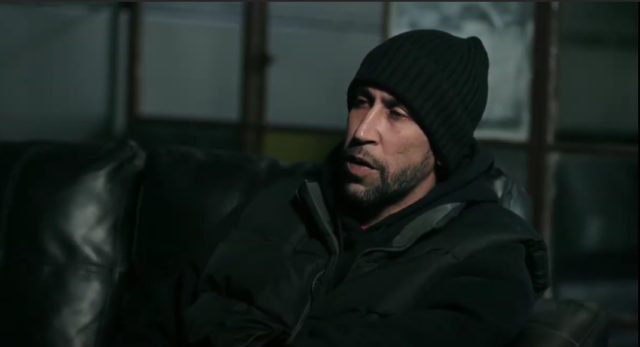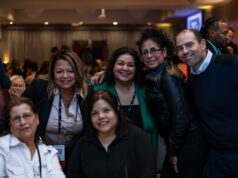The District Attorney’s office, in partnership with United Way of Dane County, county and city government officials and several community leaders, held an “End Gun Violence Press Conference” on Jan. 14 to both address the gun violence across Dane County and voice a call to action to encourage people to volunteer for mentorship programs.
Mentorship programs will be pairing adult mentors with lived experience of gun violence with youth identified by the Dane County Juvenile Detention Center. The five local nonprofit organizations heading the various mentorship programs include Big Brothers Big Sisters, Train to grow, Charles Hamilton Houston Institute, Operation Fresh Start, and Just Dane.
These programs are looking for 40 new mentors.
The press conference featured speakers from local organizations including Ashley Reynolds, director of communications for United Way of Dane County; Renee Moe, president and CEO of United Way of Dane County, FOSTER Found & CEO Jackie Hunt; Filmmaker & Director Rafael Ragland; Black Men Coalition president & CEO Corey Marionneaux, and Gloria Reyes, Chief Executive Officer at Briarpatch Youth Services. Members of the local government were also present including Dane County District Attorney Ismael Ozanne, Mayor Satya Rhodes-Conway, and Dane County Executive Joe Parisi.
The programming began with a snippet of a recently released PSA (above) addressing gun violence and urging teens to consider an alternative to crime, and to seek mentorship. It was followed by opening remarks from Moe and Ozanne.
“We believe in creating a community where everyone can succeed in school, work, in life,” Moe said. “And that doesn’t happen for our neighbors, because of systemic racism, and not extending full humanity to others. Because of inequities in education and health, poverty, and the resulting disconnection from others in society.
“We can unite around this,” Moe continued. “None of us wants to feel unsafe. None of us wants violence in our community. None of us wants youth feeling like there is no pathway to a self-defined, productive, and fulfilling life.”
Hunt further added Renold’s remarks, noting that the way to ending violence starts at relocating resources.
“We look at Maslow’s hierarchy of basic needs, if we start strengthening families and increasing equity and all those in all areas, economically, politically, emotionally, and socially, we start decreasing the disproportionate numbers of blacks involved in the criminal justice system,” she said.
In regards to mentorship, Marionneaux emphasized the necessity of mentors for youth through personal anecdotes.
“I am very familiar with trying to survive, which becomes a lifestyle for a lot of us.” Marionneaux said. “And as a young man, I was straddling the fence, A’s and B’s in college. However, when I was older, I was involved in a life of crime. And I just want to say, a lot of us give up hope….we start having violence in our life.
“And that’s not what we, a lot of our youth want. But, as you’re trying to survive, that’s something that you find yourself involved in,” he added. “And I believe when I was younger, if I had the opportunity to know of all of the resources that are offered, today, I believe I would have been a much better person at a much younger age.”
Mayor Rhodes-Conway concluded the conference with a final call to action.
“We know that in the city of Madison and in Dane County, 2020 produced a record number of shots fired incidents,” Rhodes-Conway said. “And we also know that violent behavior disproportionately affects people of color, and other disadvantaged groups in our community….we’re pulling together community partners and stakeholders to date, take action to address the specific violence patterns that we see in Madison. We’re increasing opportunities for youth to support their safety, health and positive development. And we’re working with community members, and organizations, and with public safety, to reduce violence, but we need our whole community to support young people and their families.”
“The transition of this change from violence to do something positive is continued work,” Marionneaux added. “It’s not an overnight thing. And it’s a slow pace…let’s try to put a stop to that in a group effort.”
Adults interested in volunteering to be a mentor can visit www.volunteeryourtime.org.




























